Loading...
Click here if you don’t see subscription options
Click here if you don’t see subscription options
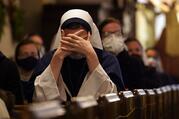
FaithExplainer
Whenever dioceses choose to lift dispensations, like with other difficult pandemic-related decisions, individual believers will have to decide for themselves when they feel safe going back to church.

Politics & SocietyDispatches
Spanish bishops published their own letter on the issue last December, “Sowers of Hope,” in which they reminded Catholics that “there is no one that can’t be cared for even if they are incurable.”
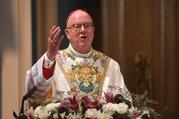
Politics & SocietyFaith
"The role of prayer and prudential judgment on behalf of all Catholics, but also especially, in a particular way, the shepherds of the church is so important."
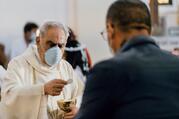
FaithThe Good Word
Reading sacred Scripture or watching a televised Eucharist can be powerful meditations, but neither rises to the level of sacrament, the mystery by which Christ promises his presence to his church.
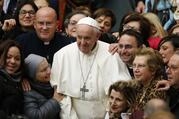
Politics & SocietyShort Take
Pope Francis challenges us to reject the selfishness of fake populism, write two veterans of social justice campaigns. Community organizing can help us build a different kind of politics.
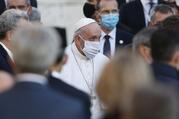
FaithVatican Dispatch
In his address to Vatican ambassadors, Pope Francis said that the pandemic “set before us a choice: either to continue on the road we have followed until now or to set out on a new path.”
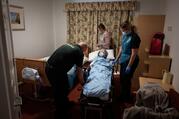
FaithNews
The Vatican is calling for a new paradigm of care for older people after what it calls the "massacre" wrought by the coronavirus pandemic, which has disproportionately killed people living in nursing homes.

Politics & SocietyShort Take
President Biden called for national unity in his inaugural address, but vengeance is not the way to repair public trust, writes Kathleen Bonnette. Restorative justice is a better way toward flourishing for all.

Politics & SocietyShort Take
Catholics in the United States who frequently use the expressions “culture of death” and “dictatorship of relativism” increasingly inhabit—and have helped to build—a world that these slogans describe.

Politics & SocietyDispatches
Leadership lapses and the spread of erroneous information and fear about possible treatments for the disease also threaten a successful Covid-19 response in Africa.
